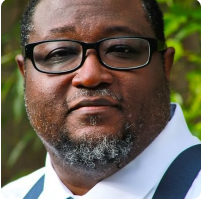With all we know about the benefits of living through our strengths and passions, imagine if kids learned about theirs early on, and went through all of their school years curious and ignited to grow into their best selves?
Maybe you have a little one, niece, nephew, or friend and you want to save them from arriving at early adulthood with the looming questions: "What am I good at?" or "What do I love and want to do for the next 40 something years?"
From reading lots of research, and living through my own personal experience as a teacher, social worker/therapist intern and mom to 2 incredible kids, I have found the following ideas key to helping kids discover their unique assets.
- Make sure children have time to explore. Many kids are super-scheduled with piano lessons, tennis lessons, playdates and structured time, so much so that they don't have time to even think about what "they" really want or love to do. Imagination and creativity need time and space to flourish.
- Give them opportunities to make choices from an early age. Now this doesn't mean everything should be a choice, but when kids can select an activity, an outfit, or even food from a list of your approved choices, it allows them to learn from their decisions. These experiences, seemingly minor, can lead kids to discovering their unique preferences.
- Observe. From a young age, I could tell that my son loved to build things, test them, destroy his creations, and re-build. To nurture this strength, family members gave Nick legos, Knex and many other "constructing" items. Of course, it's important not to pigeon-hole and label a child so he also got a keyboard and a guitar when he showed musical interest and passion. Even though he is a mechanical engineering student at MIT grad school, Nick has a diverse range of strengths that he explores and enjoys. I often refer to him as my "Renaissance Kid."
- Don't live vicariously. As parents, it can be easy to transfer the missed opportunities to work on our own strengths and passions to our children. If we are feeling strongly about our child taking those violin lessons, it's important to step back and reflect: Who really wants this?
- Find role models and mentors. If your child is interested in a topic you are not informed about, it's easy now through the internet and social media, to find an expert to connect to. Why not use Twitter to find that scientist to answer your child's questions?
- Erase the illusion of "easy." Just because a person has a strength does not mean that things come easy. In this "instant gratification" culture that we live in, it's often misleading when kids look up to celebrities or athletes who make success look effortless. Read and tell stories of hard work "paying off" for people who have found their dream niche.
- Praise the effort, not "talent". As Carol Dweck discusses in her wonderful book, Mindset, the way we praise children is critical to their success. We can turn a child away from pursuing a passion if we instill a need to "be perfect" all the time. If we encourage hard work and progress that comes from failure, we give the message that will lead to a child persevering.
- Be a role model. Are you living your strengths and modeling the joys of mindfully engaging in what you love to do? Do you have passions or hobbies that your kids see you participate in? The best way for us to show the benefit of using our strengths is to be "doing our strengths."
Joan Young, (formerly known as Joan Mancini), is a 4th grade teacher in the San Francisco Bay Area after teaching Kindergarten/1st grade for many years. Before her life as a teacher, she worked for several years as a foster care social worker and therapist intern. She is passionate about helping kids discover their strengths and stay excited about learning. Joan is also the author of “25 Super Sight Word Songs & Mini-Books” published by Scholastic. She enjoys helping teachers find creative opportunities and solutions in everyday classroom challenges.







